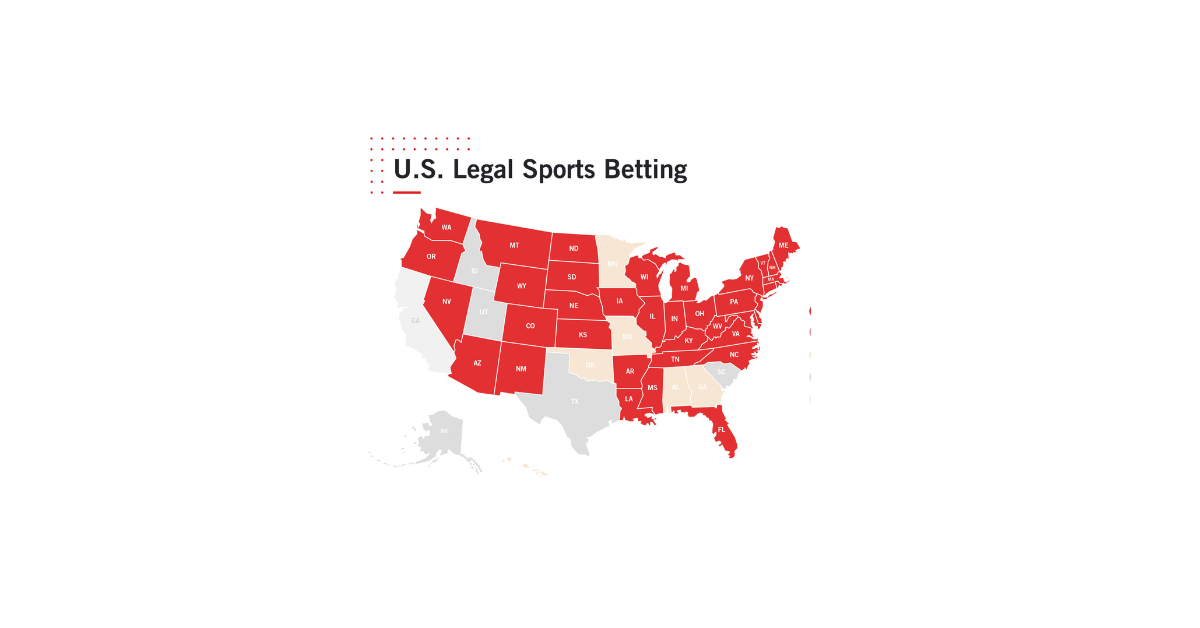Online Sports Betting Regulations in the US
Online sports betting in the US is subject to a complex web of regulations that vary from state to state. Following the repeal of the Professional and Amateur Sports Protection Act (PASPA) in 2018, states have been given the power to legalize and regulate online sports betting within their borders. As a result, there is no uniform set of rules governing online sports betting at the federal level.
While some states have embraced online sports betting and have implemented regulatory frameworks to oversee the industry, others have chosen to prohibit or restrict it. This patchwork of regulations has led to a fragmented market where the legality and availability of online sports betting can vary significantly depending on where you are located. As the landscape continues to evolve, it is essential for both operators and bettors to stay informed about the regulations in their respective states to ensure compliance and a positive betting experience.
History of Online Sports Betting in the US
The roots of online sports betting in the US can be traced back to the early 1990s when the internet started to gain popularity among the general public. As technology advanced, so did the opportunity for sports enthusiasts to place bets online on their favorite teams and events. However, it wasn’t until the late 1990s and early 2000s that online sports betting truly began to take off in the US, with the emergence of various online platforms offering a wide range of betting options to users across the country.
Despite its growing popularity, online sports betting faced significant legal challenges in the US. The passage of the Unlawful Internet Gambling Enforcement Act (UIGEA) in 2006 dealt a major blow to the industry, making it illegal for financial institutions to process transactions related to online gambling. This led to many online sports betting platforms either shutting down or turning to alternative payment methods to bypass the restrictions imposed by the law. Despite these challenges, online sports betting continued to thrive in the US, with several states taking steps to legalize and regulate the industry in recent years.
Federal Laws Impacting Online Sports Betting
When it comes to online sports betting in the United States, federal laws play a significant role in shaping the landscape. One of the key pieces of legislation that impacts online sports betting is the Professional and Amateur Sports Protection Act (PASPA) of 1992. PASPA effectively prohibited states from authorizing sports betting, with some exceptions for states that already had existing sports betting regulations in place.
Additionally, the Federal Wire Act of 1961 has been another important federal law influencing online sports betting in the US. Originally enacted to target organized crime and illegal gambling operations, the Wire Act prohibits the use of wire communication facilities to transmit interstate or foreign bets or wagers. This law has been interpreted to apply to online sports betting, making it illegal to use interstate wire communications for sports betting purposes.
State Laws Regarding Online Sports Betting
State laws play a crucial role in shaping the landscape of online sports betting in the United States. Each state has the authority to determine the legality of online sports betting within its borders. Some states have embraced online sports betting, passing legislation to regulate and tax this activity. However, others have opted to prohibit or restrict online sports betting, citing concerns over potential negative impacts on society. The diverse approaches taken by states have led to a patchwork of regulations across the country, creating challenges for both operators and bettors.
The differences in state laws regarding online sports betting highlight the complex nature of the legal framework governing this industry. While some states have chosen to fully legalize and regulate online sports betting, others have imposed strict limitations or outright bans. This disparity has resulted in varying levels of accessibility and consumer protection for individuals looking to engage in online sports betting activities. As the landscape continues to evolve, it remains essential for stakeholders to stay informed about the latest developments in state regulations to ensure compliance and responsible participation in this growing industry.
Legal Online Sports Betting Platforms in the US
For those looking to participate in legal online sports betting in the US, there are several established platforms to consider. These platforms have been approved and regulated by the respective state authorities to ensure a safe and secure betting experience for users. With a wide range of sports events available for betting, these platforms offer competitive odds and convenient payment options for users to enjoy a seamless online betting experience.
Many legal online sports betting platforms in the US are affiliated with well-known and reputable casinos or sportsbooks, providing users with added assurance of their legitimacy and reliability. These platforms often offer bonuses and promotions to attract new users and retain existing ones, making it more enticing for sports enthusiasts to place their bets online. With user-friendly interfaces and mobile compatibility, these platforms make it easy for bettors to wager on their favorite sports teams and events from the comfort of their own homes.















